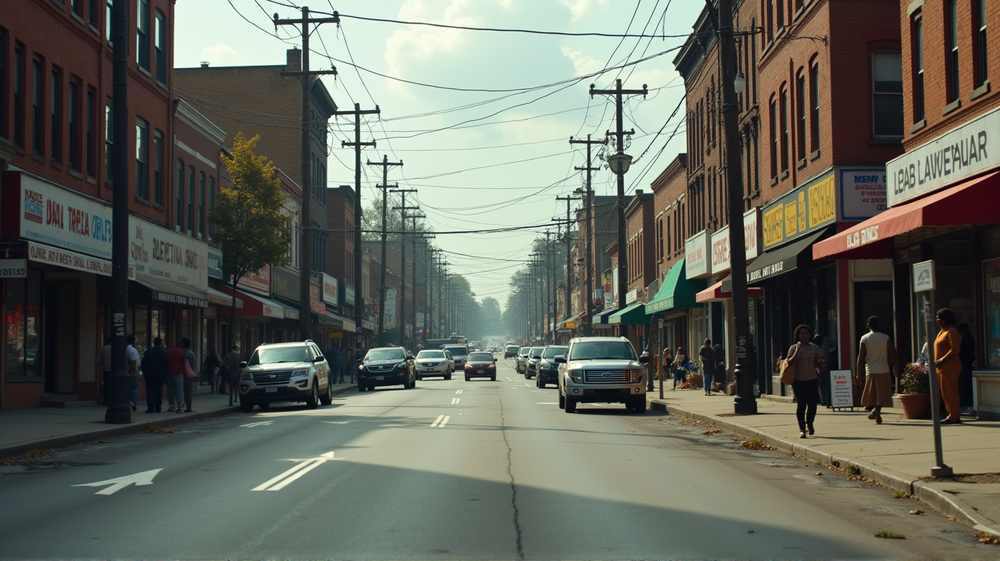Fleeing Hope: The Exodus Transforming Springfield's Economy
Springfield, Ohio once buzzed with the vibrant energy of a multicultural community where Haitian immigrants played a pivotal role in the local economy. These new residents filled much-needed roles in factories and businesses, contributed to the town’s cultural tapestry, and propelled its unexpected post-pandemic economic boom. However, the domino effect of Donald Trump’s hardline anti-immigration stance now echoes through the corridors of this bustling community.
Once Flourishing, Now Faltering
Alicia Mercado, the owner of Adasa Latin Market, observes the shrinking clientele with a heavy heart. Once sustained by the thriving Haitian community craving Caribbean flavors, her business has witnessed a drastic decline in foot traffic. “Our customer base of Haitians has dropped significantly,” she shares, coinciding with broader economic downturns in Springfield, which had previously peaked as a model of economic recovery.
The arrival of more than 15,000 Haitians over the past eight years made Springfield a rare post-industrial success story. Job numbers soared alongside the opening of major housing developments, invigorating local public finances. But with Trump’s restrictive immigration policies, the community faces uncertainty—and an economy once buoyant now stands on shaky ground.
The Economic Ripples
As policy changes deprioritize immigrants, businesses across Springfield report visible distress. Companies like Topre America, which once relied on Haitian workers for essential roles, now show vacancy listings that go unattended for months. Springfield’s manufacturing sector is seeing a drop-off that mirrors the decline in the city’s population.
“Our city’s financial health is tied to income taxes,” explains city finance director Katie Eviston, highlighting the fiscal strain now plaguing Springfield. The anticipated growth that fiscal planners had forecasted vanished, replaced with a shortfall once thought only possible during the COVID-19 shutdowns.
National Implications
Springfield’s plight represents a larger national narrative; the US economy is not a patchwork that can dismiss the threads immigrants weave. The Association of Equipment Manufacturers warns that over 85,000 domestic jobs may remain unfilled due to diminished visa allocations. Mark Muro from the Brookings Institution illuminates this point: “Labor shortages and tariffs are creating substantial economic pressures on US producers.”
Struggling to Stay
Businesses rooted in immigrant communities are navigating a difficult transition. While some residents choose flight to countries like Canada, others, tied to the hope of reviving Springfield’s diversity-led prosperity, linger in the uncertainty. Youdins Solon at Keket Bongou finds solace in community as job prospects dwindle, yet many like him remain at the mercy of ongoing policy shifts.
Springfield’s story is a poignant reminder of the profound impact of legislative decisions on real lives and vibrant communities. The city’s once bright future dims under the weight of disappearing faces, a stark reflection of immigration policies shaping not just Springfield, but the soul of America. As stated in The Guardian, these are more than stories—they are lived realities, stirring in the heart of Springfield.




